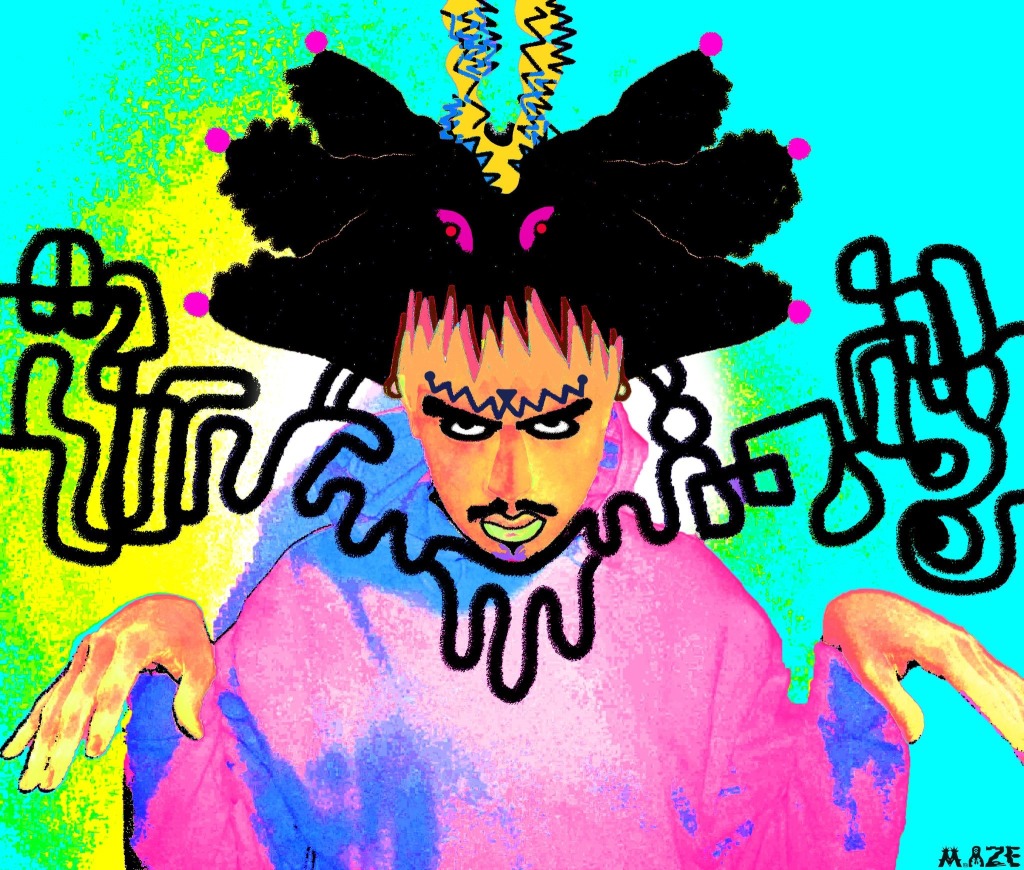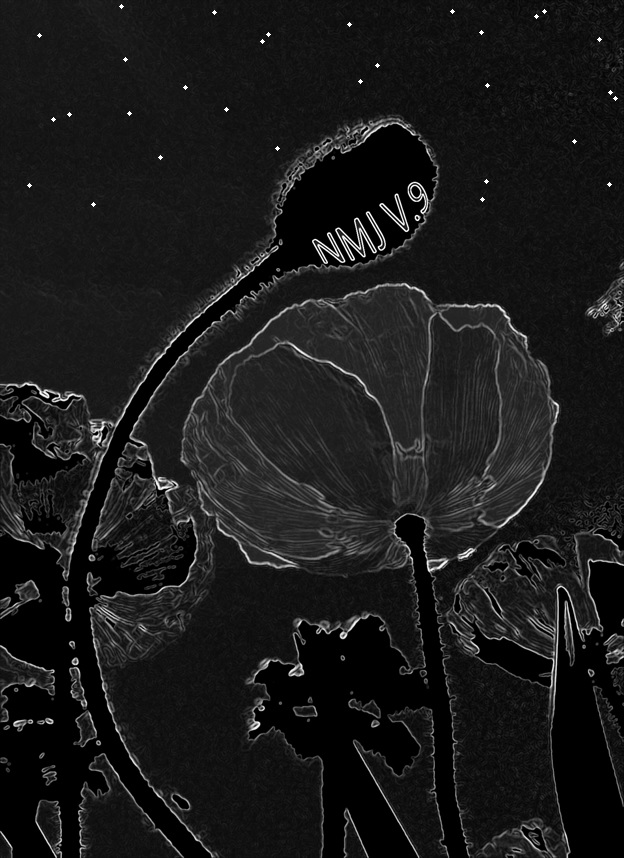Contributors: Featured Writer Michael Paramo (M.AZE), Jarid McCarthy, Nicolette Elzie, Joe Balaz, Lisa Brunner, Carol Casey, Eddie Kim, Barbara Daniels, Boloere Seibidor, Shannon Cuthbert
Month: May 2021
Lunar Notes: An Interview with Featured Writer Michael Paramo (M.AZE)

Michael Paramo (M.AZE) is a Queer Aze Mexican-American artist and researcher from the suburbs of north Orange County (which occupy the stolen territories of the Tongva/Kizh, Acjachemen, and Payómkawichum). They created AZE journal (azejournal.com) in 2016 (originally known as The Asexual), where they publish journal issues on topics intersecting with asexuality, aromanticism, and agenderness. They have been creating digital art with a focus on the self-portrait since 2018. Their work has been published in High Shelf Press and displayed at the second annual Art + Memory + Justice Symposium at the University of British Columbia. As a PhD student, they are studying the intersections of aesthetics and decoloniality.
Why writing? What pulls you into the page? What writers and/or artists first inspired you?
I was introduced to writing through the carceral logics embedded in Western colonial institutions, which teach students to write primarily for evaluation. The constant presence of a judgmental overseer (teacher) made writing feel limited, static, and restrictive. I was never writing for myself, but for someone else’s approval. So, you could say that my relationship to writing was ‘tainted.’
I did not realize until later that writing, like visual art, could be whatever I wanted it to be. Although I have not published many poems and was not formally schooled or introduced to poetry in educational institutions, I have written poetry from a young age because I am drawn to its freedom. When I feel the need to express myself in words, I find that it comes out most naturally for me in poetic language.
My mother is a huge influence on me, both as an artist and as a guide for navigating this space we call reality. Being in relationship with a person who cares deeply for you and is not afraid to demonstrate that care is always a benefit in this life. My grandmother is a poet, and I would not be surprised if this ‘passed on’ to me generationally. Artists in general are integral to my survival (I include the Earth as an artist in that statement). In the most difficult times, art and artmaking have helped motivate me to continue living.
What are you currently working on, and do you have anything coming up that readers should know about?
I am in the process of writing a book for Unbound publishers entitled Ending the Pursuit: Asexuality, Aromanticism, and Agender Identity. The book is currently available for pre-order via the Unbound website. One of the book’s central purposes is to analyze how mainstream conceptualizations of identity are historically rooted in colonialism and the subsequent imposition of medical discourses which pathologized various aspects of human experience as ‘abnormal.’ The book will also cover how asexuality, aromanticism, and agenderness can function as concepts which destabilize certain assumptions about human experience that are held up or assumed to be “truth.” It will therefore consider how we can disentangle our understandings of self and humanity from the Western colonial imagination, particularly through an asexual, aromantic, and agender lens.
What was the first thing you had published? How has your writing or focus changed since then?
The first thing I had published that I can remember was an essay entitled “Hypermasculinity and LGBTQ+ Identity Erasure in Communities of Color” for an online publication known as The Queerness. The essay covered issues of historical trauma and the effects of hypermasculinity on queer people in non-white communities. Being a queer Mexican-American myself and growing up in the constant presence of machismo, I wrote the essay while reflecting on the effects of cisheteropatriarchal performance and policing in my life. My writing has continued to focus on how historically rooted processes, such as colonialism, have inherently shaped the contours of our reality and our imaginations. My writing also continues to stem from personal experience even if it seems caught up in abstract theoretical language at times.
What would you say is the center of your work? What inspires you?
The center of my work is transformation and survival. I transform myself through my work in order to continue to find a purpose to survive. I also consider this when thinking about how my work will affect a potential audience. I am motivated to use my work as a tool to inspire people to transform themselves and find motivation to survive in this world. I have been told my work creating AZE journal (azejournal.com), a space for ace, aro, and agender people to publish their writing and artwork, has helped people think about identity differently and motivated others to survive during difficult times in their lives, which has been encouraging.
What space does or should art and writing occupy right now?
The space that encourages people to look inside themselves and think critically about the living community they are a part of (not disconnected from). For some people, this is an uncomfortable space to be and takes some time getting used to, so writing and art should also be there to help comfort people while they are on their journey.
What advice would you give to a writer just starting out? If you could go back and tell your younger self one thing, what would it be?
Do not expect anyone to care and do not desire approval. I would give myself the same advice. It is the desire of approval, acceptance, or appreciation for your work that risks trapping you in a cycle of disappointment. You can enjoy approval, acceptance, and appreciation so long as you do not desire it (and especially so long as you do not create solely for that purpose).
If you were the last person on earth, and you pulled the last book from a pile of ash, what do you hope it would be? Why?
A book on foraging, so I could increase my chances of eating something and not dying.
You can read Michael Paramo’s work in the ninth issue of Night Music Journal, which will be released May 21st.
